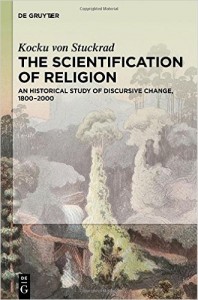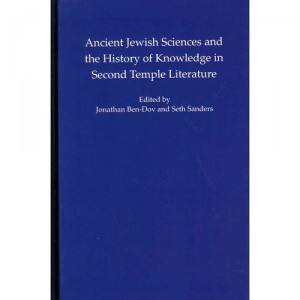“Night Begins the Day: Rethinking Space, Time, and Beauty” looks like a marvelous exhibit. An artistic take on the Jewish day, which begins the night before, it runs through September 20 at the CJM, 736 Mission St., San Francisco. More information available at http://www.thecjm.org.
A quote in this Jweekly.com article describing the exhibit, however, caught my eye:
According to Rabbi Peretz Wolf-Prusan, senior educator at Lehrhaus Judaica in Berkeley, the rabbis of early times had a deep understanding of astronomy: After all, the Jewish calendar follows the lunar cycle, and called upon Jews “to observe nature and be a part of this world.
“We have a tradition,” Wolf-Prusan notes, “that says, ‘Pay attention. See what’s around you.’ ”
There are certainly a number of rabbinic sources that support this viewpoint; Wolf-Prusan is not wrong, precisely. But in keeping with the old borscht belt adage “two Jews, three opinions,” I’d like to throw my own hat into the ring. While the Jewish calendar is lunisolar (not purely lunar), I would argue that the gradual move toward the fixing of the Jewish calendar (i.e., in place by the ninth-tenth centuries CE) turned rabbinic eyes away from direct celestial observation, not toward it. As per the research of Sacha Stern in ‘Calendars in Antiquity: Empires, States, and Societies’ (2012, Oxford University Press), this move was in keeping with the rise of the era of urbanization and fixed calendars (Stern 336). Aside from the recitation of the rosh hodesh (new month/moon) prayer (usually performed en passant) and the blessing on the sun recited every twenty-eight years (more about which, see here and here) Judaism is no longer focused on the skies. Heaven, yes, but not the heavens.
But here is the key. As is so often the case when analyzing rabbinic sources, particularly the Babylonian Talmud, multivocality reigns. This, combined with doubts cast upon the historicity of certain rabbinic institutions and astronomical-calendrical procedures makes it difficult, if not impossible, to unequivocally state that the rabbis all understood, let alone championed, the observation and study of the cosmos. In my own recent research, I demonstrate this rabbinic multivocality, highlighting views of the natural world on Earth, and perspectives on the heavens, that range from reverence and appreciation to outright scorn toward those who would waste time on any pursuit but the study of Torah.
That said, however, in addition to his own call for Jews to appreciate the natural world, Rabbi Wolf-Prusan also mentions that of the late rabbi and civil rights activist Abraham Joshua Heschel for “‘radical amazement’ — a sense of wonder that is a prerequisite to wisdom and faith.” It is on the contemporary scene that we see the opening of the floodgates of writing and political action — from Heschel’s call to similar calls for the preservation of nature as a “Torah responsibility” by the Rabbinical Council of America (Orthodox), as well as the Conservative, Reform, and Reconstructionist movements. In addition, the past few decades have brought with them new Earth-based Jewish groups, including Tel Shemesh, The Walking Stick Foundation, the Adamah Fellowship, and Wilderness Torah.
While these are most welcome changes, I leave open the question of whether these were borne of the classical sources themselves or whether they are, in fact, inspired but primarily contemporary shifts toward a more grounded (and cosmos-inspired) spirituality.


